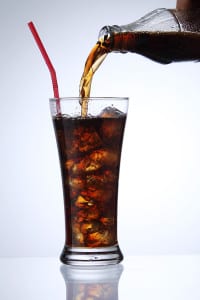5 Ways to Treat Your Overactive Bladder Naturally
Overactive bladder (OAB) is a very common health problem that is often a source of discomfort and embarrassment. Perhaps as a result of the stigma attached to incontinence, many patients are reluctant to bring up their issues of urinary frequency, urgency or urinary incontinence with their health provider. While it is our goal to make these conversations easier, it helps to have steps you can take on your own to help control your overactive bladder.
1. Balance your Fluid Intake
In some people with OAB, decreasing fluid intake can noticeably reduce urinary frequency. However, be cautious not to shift to far in the opposite direction as drinking too little fluid may result in constipation or kidney stones. Ideal fluid intake is controversial but should be responsive to your thirst.
 2. Say No to Alcohol and Caffeine
2. Say No to Alcohol and Caffeine
Caffeine and alcohol consumption may worsen the symptoms of overactive bladder. They can act as diuretics and bladder irritants. Keep in mind that caffeine does not only include your morning cup of coffee. Caffeine-loaded drinks/foods may include soda, tea, chocolates and certain medications. It helps to keep caffeine to less than 200mg per day (or less than 2 cups of coffee). The small amount of caffeine in decaffeinated coffee does not have an effect on OAB symptoms.
3. Avoid Artificial Sweeteners
Artificial sweeteners have become increasingly common as a weight control entity to reduce calorie intake. The National Association for Continence has stated that artificial sweeteners in diet drinks may increase OAB symptoms as much or more as compared to regular sugary drinks.
4. Exercise your Pelvic Muscles
Women can effectively strengthen their pelvic muscles to avoid and reduce leak and control involuntary urge. These are often referred to as Kegel exercises. You may read more about these on our web site or watch these videos describing them. Some patients may benefit from learning these exercises from a pelvic floor therapist.
5. Lose Weight
Being obese or overweight can pose a number of health risks, one of which includes an overactive bladder. The increased weight may apply pressure on your bladder and pelvic muscles affecting urination frequency and urgency. Weight loss has been shown to reduce urinary incontinence.
Colin M. Goudelocke, M.D.

 2. Say No to Alcohol and Caffeine
2. Say No to Alcohol and Caffeine